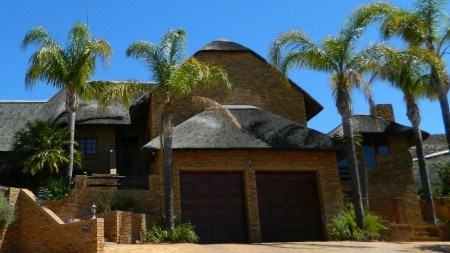Adrian Goslett, RE/MAX CEO, looks back at how property performed this year and ahead to next year.
Over the last year, residential property sales have gone from strength to strength in Cape Town and the surrounding areas, a trend that is expected to continue as we head into 2018, says Adrian Goslett, Regional Director and CEO of RE/MAX of Southern Africa.
“The Mother City has remained highly sought throughout 2017, which is evidenced by the significant increase in property sales we have seen in the last twelve months. There has been a continued influx of people moving to the Western Cape from many of the inland regions throughout the country. The demand has resulted in property price growth in the Western Cape outstripping other regions of the country – good news for homeowners, but bad news for first-time buyers trying to get their foot in the door,” says Goslett.
Fuelled by real demand, Goslett predicts that Cape Town will continue to see positive house price growth in 2018. “While the very steep upward curve we are currently seeing may flatten marginally, Cape Town will remain a lucrative investment destination from both a capital growth and rental income perspective as the current growth is not a bubble.”
He notes that the vast pace of semigration to the Cape has meant that infrastructure development is not keeping up with the current pace of population growth in the Western Cape, especially in the greater city, a challenge that will need to be addressed in 2018 and beyond. “Infrastructure such as roads and transport routes into the city will need to be upgraded to cater for not just the current growth in people, but for future growth as well,” he says.
While property sales in Cape Town increased, Johannesburg experienced a slowdown this year. “Although sales were up marginally in 2017 on the previous year, there was a decline in registrations due to issues such as the lack of available bank finance and lags at the deeds office. Despite plenty of stock available on the market, there is also a disparity between what sellers in the current market want for their property and what buyers are to prepared to pay,” says Goslett. “Even with a slower market, Gauteng still accounted for the lion’s share of property transactions during this year. Johannesburg will continue to be the country’s economic hub with almost 45% of RE/MAX sales emanating from Gauteng – albeit tough times.”
Looking ahead to 2018, Goslett says that the recent downgrade by another of the major credit rating agencies could see the Johannesburg market slow further, with finance likely to become more expensive. “It will cost more for the government to borrow money, which in turn will have a knock-on effect on the consumer. Financial institutions will need to hold more money in reserve, which will make it more difficult to obtain credit, and the credit that is granted will come at a higher cost,” he explains. “A marginal mitigating factor is that to some degree financial institutions have already made provision and priced in the effects that a downgrade would have on credit costs.”
Another thing that will impact the market going forward is the governing party elections. “If there is a smooth, violence- and corruption-free transition of power in the governing party, I believe sentiment will pick up, which will manifest in real estate sales momentum and positive house price growth. We will have to wait and see,” Goslett concludes.




